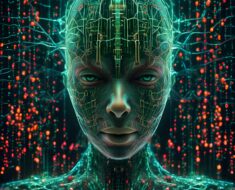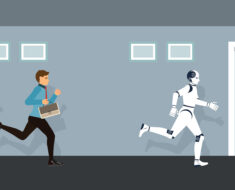The sterile hum of the hospital fades into the background as you sit, anxiously awaiting your doctor. The door creaks open, but instead of a white coat and stethoscope, you’re greeted by a flicker of pixels on a screen. This isn’t your average doctor’s visit; this is the future of healthcare, powered by artificial intelligence (AI).
AI, once relegated to science fiction, is now rapidly transforming the medical landscape. It’s not here to replace doctors, but rather to augment their capabilities, becoming a tireless assistant, a keen diagnostician, and a personalized health advisor all rolled into one.
Imagine a world where AI algorithms analyze your medical scans, pinpointing abnormalities with hawk-like precision before your doctor even lays eyes on them. Early-stage cancers, once elusive shadows, are now illuminated, offering a fighting chance at a cure. This isn’t just about detecting disease; AI can predict it. By analyzing your genetic makeup, lifestyle choices, and medical history, AI can map your future health risks, allowing you to take preventative measures before it’s too late.
But AI’s impact goes beyond the clinic walls. Imagine a virtual doctor, available 24/7, offering personalized advice through your smartphone. No more waiting rooms or late-night anxieties; AI can guide you through minor ailments, monitor chronic conditions, and even provide emotional support. This democratization of healthcare empowers individuals, putting the power of information and proactive care directly into their hands.
However, this brave new world is not without its challenges. The ethical implications of AI in healthcare are complex. Who is responsible for a misdiagnosis made by an algorithm? How do we ensure that AI algorithms remain unbiased and free from human prejudices? These are questions that need careful consideration as we move forward.
The future of healthcare is not a dystopian vision of robots replacing doctors. It’s a future where humans and AI collaborate, leveraging each other’s strengths to create a more efficient, accessible, and personalized healthcare system. It’s a future where the doctor in the room may not wear a white coat, but its unwavering dedication to your health remains the same.
So, the next time you step into a hospital, don’t be surprised if you’re greeted by a friendly AI assistant. Remember, it’s not a replacement for your doctor, but rather a powerful partner in your journey towards a healthier, happier you. The future of healthcare is here, and it’s powered by the combined intelligence of humans and machines. Are you ready to be a part of it?




